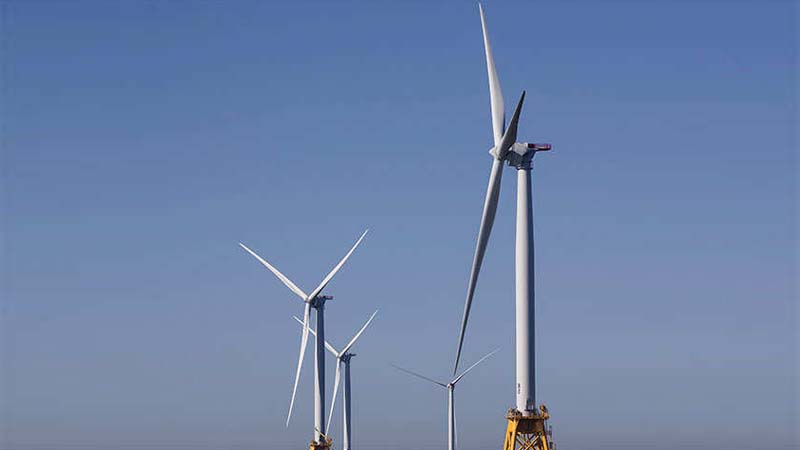S Africa seeks to renegotiate old RE projects

South Africa has started discussions with power producers to try to get cheaper electricity from some older renewable energy projects and give the economy a boost, several participants in the talks say, report agencies.
But participant power firms - some of which are backed by big names such as EDF Renewables - say they can't give the government big savings on many of the 64 solar and wind projects that are part of the discussions, because most of the money has already been spent.
Putting too much pressure on them would risk deterring renewable energy investment just as the country is suffering nationwide power cuts. Business confidence is weak after corruption scandals under former president Jacob Zuma.
Climate activists are wary of any moves that could delay the country's sluggish transition from heavily polluting coal power, which still accounts for more than 80% of output and makes South Africa one of the world's top-20 carbon dioxide emitters. "80%-90% of project costs are sunk costs, so as an industry we need to manage expectations (by showing) that there isn't that much room for savings," said Jan Fourie, general manager for sub-Saharan Africa at Scatec Solar, another company that owns projects under discussion.
He said the government had not yet made any formal proposals.
"A unilateral tariff reduction would shake investor confidence and undermine future public-private partnership projects," Fourie added. Renewable energy projects are protected by more than 140 billion rand ($9.4 billion) of state guarantees, exposing the government to huge penalties if it were to terminate or breach existing agreements. Twelve projects, including Scatec's, also enjoy protection from the Multilateral Investment Guarantee Agency (MIGA), part of the World Bank Group, which offers insurance against breach of contract, said Hoda Atia Moustafa, MIGA's Africa head. EDF Renewables did not comment in detail on the talks but said they were constructive.
Energy Minister Gwede Mantashe and Public Enterprises Minister Pravin Gordhan have stressed the talks are voluntary, asking for firms' cooperation as "good citizens" at an Oct. 4 meeting, according to minutes of the meeting seen by Reuters. They asked for "quick win" projects that could support local businesses with cheaper electricity, offering a sweetener in the form of extensions to power purchase agreements for projects bid between 2011 and 2014.
Those projects are being targeted because they had larger tariffs, as funding and technology costs were higher. Mantashe told power firms that the "government isn't the enemy of renewable energy" but that if administered prices such as those for electricity failed to come down then the economy would not grow, the minutes showed.
Mantashe's spokesman Nathi Shabangu said the discussions were private and at an early stage. Gordhan's spokesman Richard Mantu referred all questions to the energy ministry. Lenders and lawyers said the government was being unrealistic by targeting quick reductions in power prices through a "collective bargaining" approach of the type used in wage talks with unions.
"Attempting to achieve a blanket tariff reduction is almost impossible because each project is different," said Alastair Campbell, managing director of Vantage GreenX, a sustainable energy fund with exposure to some affected projects. Some solar and wind projects will be unable to extend the lifespan of their equipment, power producers said. Jason van der Poel, a partner at law firm Webber Wentzel who represents power firms, said there were competition and procurement law obstacles to overcome.
"The risk is that this becomes an enormous drain on resources for a marginal benefit in terms of the tariff reduction," he said. A simpler way to lower power prices could be to give the go-ahead for projects to refinance their debt. Power firms could then pass on some or all of the savings. Fourie of Scatec said debt was the "low-hanging fruit" and that investors could give the government a lump sum from any savings. Anton Eberhard, a member of President Cyril Ramaphosa's task team on struggling state power utility Eskom, said any marginal gains from a tough renegotiation would be outweighed by "future investment uncertainty". Instead, the government could run more renewable energy bidding rounds, which could yield prices below 50 rand cents per kilowatt hour versus Eskom's average selling price of 102 rand cents per kilowatt hour, he said.




